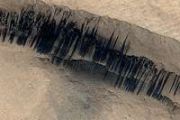
Copernical Team
SAIC and Rogue Space Systems partner to deliver services for objects orbiting Earth
 Science Applications International Corp. (NYSE: SAIC) and Rogue Space Systems Corporation has announced a strategic partnership to develop solutions that provide rapidly deliverable In-Orbit Service Assembly and Manufacturing (ISAM), asset inspection and Space Situational Awareness (SSA).
"Together, SAIC and Rogue bring unique skills and expertise that will support the growing demand for s
Science Applications International Corp. (NYSE: SAIC) and Rogue Space Systems Corporation has announced a strategic partnership to develop solutions that provide rapidly deliverable In-Orbit Service Assembly and Manufacturing (ISAM), asset inspection and Space Situational Awareness (SSA).
"Together, SAIC and Rogue bring unique skills and expertise that will support the growing demand for s Webb captures clearest view of Neptune's rings in decades
 NASA's James Webb Space Telescope shows off its capabilities closer to home with its first image of Neptune. Not only has Webb captured the clearest view of this distant planet's rings in more than 30 years, but its cameras reveal the ice giant in a whole new light.
Most striking in Webb's new image is the crisp view of the planet's rings - some of which have not been detected since NASA's
NASA's James Webb Space Telescope shows off its capabilities closer to home with its first image of Neptune. Not only has Webb captured the clearest view of this distant planet's rings in more than 30 years, but its cameras reveal the ice giant in a whole new light.
Most striking in Webb's new image is the crisp view of the planet's rings - some of which have not been detected since NASA's IAC 2022: ESA DG and Directors meet the press
 Video:
00:40:00
Video:
00:40:00
The world's largest global space event takes place in Paris from 18 to 22 September 2022 and ESA, of course, will be there!
Watch the replay of the first live coming from the International Astronautical Congress with the ESA Director General and several Directors talking to the press. They will answer questions from journalists while focusing on ESA’s strategy, Agenda 2025 and the ambitious package that will be put forward at the ESA Ministerial Council in November.
New Webb image captures clearest view of Neptune’s rings in decades

The NASA/ESA/CSA James Webb Space Telescope is showing off its capabilities closer to home with its first image of Neptune. Not only has Webb captured the clearest view of this peculiar planet’s rings in more than 30 years, but its cameras are also revealing the ice giant in a whole new light.
IAC 2022: ESA DG and astronauts meet the press
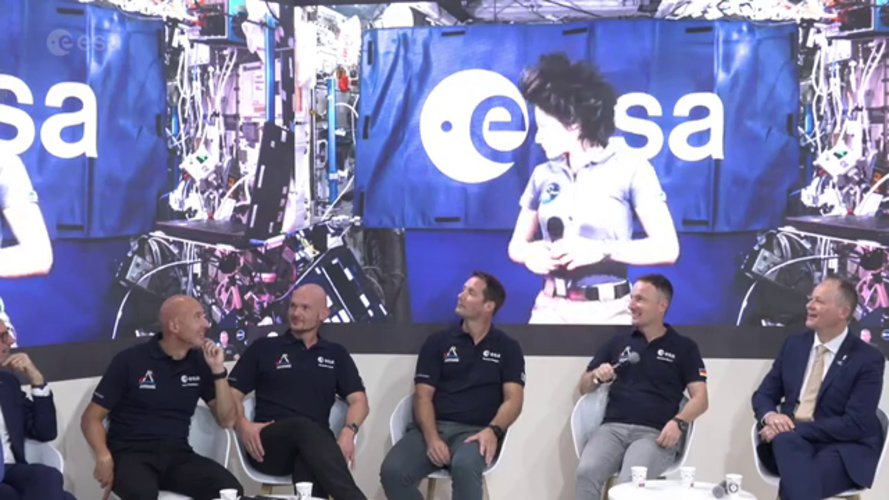 Video:
01:00:00
Video:
01:00:00
ESA astronauts Thomas Pesquet, Luca Parmitano, Alexander Gerst, and Matthias Maurer, together with the ESA Director General answered questions from journalists at the IAC in Paris. Andreas Mogensen joined remotely and Samantha Cristoforetti connected directly from the the International Space Station.
American, Russians to blast off for ISS as war rages in Ukraine
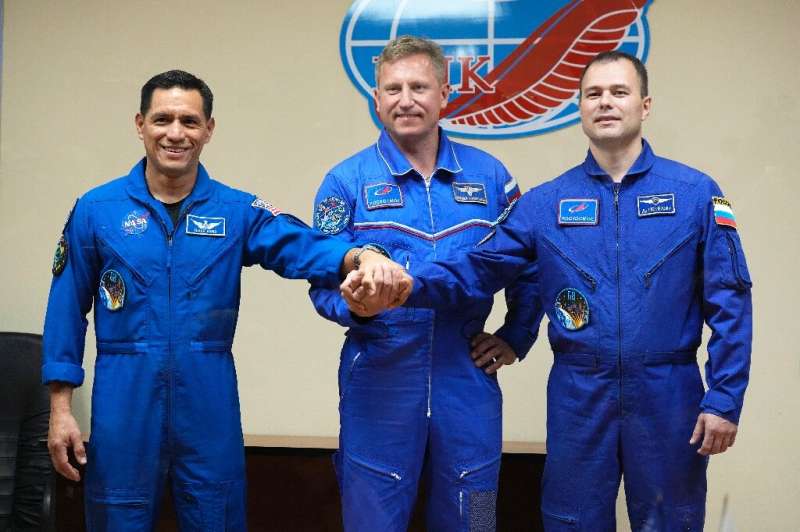
A US astronaut and two Russian cosmonauts are set to blast off to the International Space Station Wednesday on a Russian-operated flight despite soaring tensions between Moscow and Washington over Russia's invasion of Ukraine.
NASA's Frank Rubio and Russia's Sergey Prokopyev and Dmitry Petelin are scheduled to take off from the Russia-leased Baikonur cosmodrome in Kazakhstan at 1354 GMT, according to Russian space agency Roscosmos.
Rubio will become the first US astronaut to travel to the ISS on a Russian Soyuz rocket since President Vladimir Putin sent troops into pro-Western Ukraine on February 24.
In response, Western capitals including Washington have hit Moscow with unprecedented sanctions and bilateral ties have sunk to new lows.
Zooming in on drought from space

We are all aware that the summer of 2022 has been one of the hottest on record, causing drought and raging wildfires in many parts of Europe. Satellite data have been used to report the baking temperatures of the land surface and map fires, but the Copernicus Sentinel-1 radar mission has also been used to zoom in and provide very high-resolution measurements of the actual moisture content of the surface soils. Maps of northern Italy, for example, show how dry this summer has been compared to two years ago.
Weightless on Earth with VIVALDI

During missions on the International Space Station, astronauts’ bodies go through a wide array of changes due to lack of gravity - everything from vision to cardiovascular health to bone density is affected.
Though astronauts exercise and take supplements to mitigate some of these effects, understanding more about deconditioning in microgravity could allow physicians to design better treatments. This wouldn’t just be useful for spacefarers; it could also improve treatment strategies for common health conditions here on Earth.
Revealing spacecraft geometry effects on impact simulations for NASA's DART mission
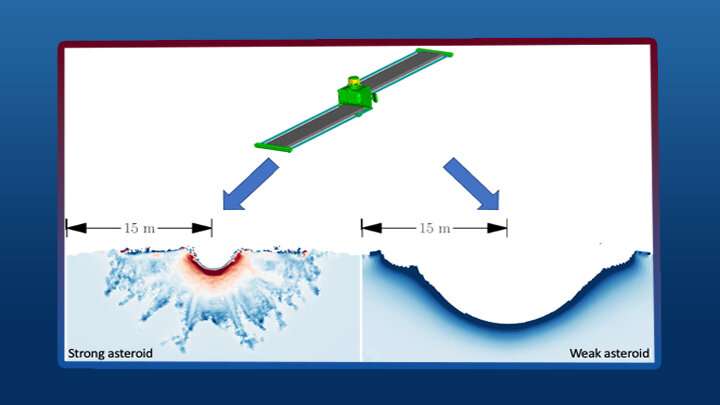
ESA tracks world-first asteroid deflection
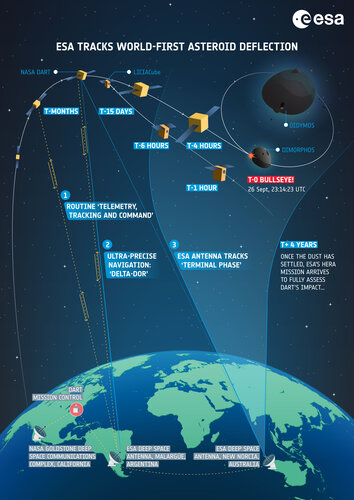 Image:
ESA's Estrack network tracks DART in the vital moments before asteroid impact
Image:
ESA's Estrack network tracks DART in the vital moments before asteroid impact 














